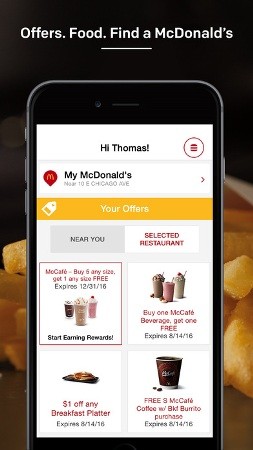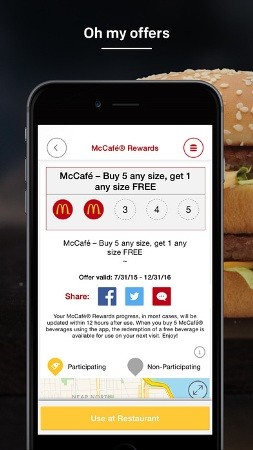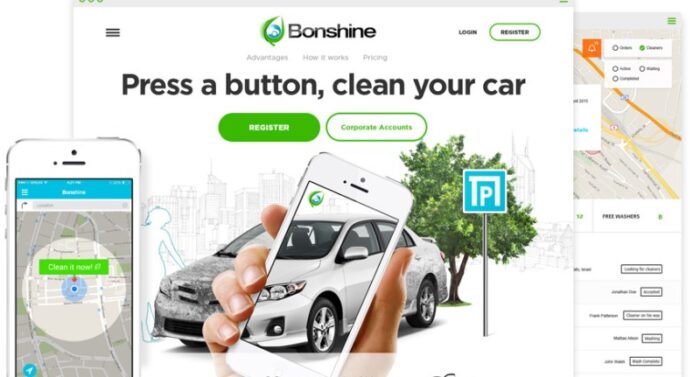Due to an increased usage of mobile devices, it may be in a company’s best interest to create and adapt their websites to be mobile friendly. Moreover, as an operating company, you probably already have a mobile friendly website.
Thus you know the benefits a mobile friendly website gives you, including your users’ ability to interact with your services more smoothly rather than trying to load the desktop version onto their phones.
However, once you’ve established your mobile friendly website, do you also need to create a mobile app? How does it differ from a mobile version of the the website and what advantages can it offer to your business?
1. What is the difference between a responsive web and a mobile app?
Simply said, a mobile responsive website allows users to switch between different devices while the website automatically adapts its resolution, image size, and scripting abilities to each device. The design of the website also responds to the user’s behavior and environment based on their devices’ operating system, orientation and screen size.
Read also: How to improve your website for lead generation: Web Design Tips for Great User Experiences
In comparison, a mobile app has the same benefits of a responsive website but can offer many more possibilities.
When is having a mobile website not enough?
Now let’s take a look at some specific cases when you may need to develop a mobile application:
- You will need an app if you have a product or service that requires a user to go through a payment procedure such as ordering a pizza, reserving tickets for a movie, buying clothes etc.


It’s very convenient to place orders using an app. Many businesses use this opportunity to increase their sales.


- You will also need one if you deliver services that should be available “on the go” such as car washing or scheduling a specific appointment.

- You should invest in an app if you need access to the device’s functions such as using the camera to try on new clothes, shoes, make-up, etc.



These examples require extended functional abilities that only an app can provide.
Below is a short list of what a mobile app can offer:
- Better user experienceEven if your mobile version works perfectly on a full range of mobile devices, it will always lose to an app in terms of its loading speed. Also, your website design will never leave as good of an impression as a mobile app will.
- Extended functionsTake for example, in-app purchasing. Buying goods from a mobile website version can be extremely hard and inconvenient because of its lower loading speed, awkward button positioning, and payment system which is not designed for mobile devices.
- Improved securityThe most common concern about the responsive mobile websites is — will my data be secure? It’s OK if your website doesn’t require you to fill out personal data forms, passwords or credit card information. However, so many problems may occur if it does, such as identity theft, payment system failure, malware attacks, etc.
- The functions can be available offlineIt’s often impossible to have internet connection all the time. A common situation that we may all have experienced is when your phone battery is low, you think twice before launching your internet browser. When you have the comfort of knowing that you don’t have to go online, you’ll be more willing to use the app. You can run the app freely without worrying about the impact it will have on your battery life, as opposed to browsing through a regular website.
Read also: How to increase sales with a mobile app
Choosing between a responsive website and a mobile app is similar to debating whether or not to use a bicycle or a car to get somewhere. It depends mostly on your tastes, budget, and needs. Let’s dive into the pros and cons of having a responsive website or a mobile app to get a better understanding of what may be best for you.
2. The Responsive Website: Pros and Cons
When comparing the mobile apps vs mobile websites, the first option may save you a lot of time and money since the development process allows your website to be viewed on most web browsers. However, it has its fair share of setbacks as well. Developing a responsive website acts as a solve-all mechanism for problems that have many details and aspects that just get covered up instead of truly solved. Let’s take a look at the pros and cons:
Pros:
- It will function across all devices. It only has to be built once, and it will adapt to any screen size, making a web page have the same look on different monitors, laptops and screens.
- More awareness about your business with less effort. If you rely on just one website for your business, all of the attention will most likely be drawn there. The mobile version is useful in creating a mobile presence for your business. A responsive mobile version will also support your main website’s functionality.
- Less resources spent on maintenance. Similarly to what was mentioned above, you will only have one site to manage. This can allow you more flexibility and control since everything is done in a single place. There will be no need to get in touch with several vendors in order to keep your other site’s versions up-to-date.
A responsive web is great for wanting your site to work across all devices without spending too much money. It also increases your SEO.
Cons:
To bring some balance into the equation, there are also a few drawbacks to keep in mind when considering the responsive website:
- Lower User Experience. A user’s experience on a responsive web may not be as rich as one from a mobile app. Why? Oftentimes images and animations are slow to load. Most users will have to wait for the browser to download the entire page with all its features before being able to see the page. Users may become impatient and frustrated and decide to leave the page all together..
- An Internet Connection is Required. This can limit the opportunities and instances for when the site can be used or accessed. With a mobile app, a user can download it once and open it later whenever and wherever it’s needed. The lack of convenience is something to keep in mind.
- A Lack of Push Notifications and Functions. Push notifications are a great and effective way to get the user’s attention. However, the responsive web is not able to access phone functions such as the camera, phone numbers or calendars since it is only relying on the browser. This can limit the options and functions that the responsive website can offer to the user in comparison to a mobile app which has access to all of these features.
These are a few things about the responsive website to consider in terms of your business. What is most important for your company? Is it graphics or an interaction with the user? Is it a high page ranking? These are just a few things to think about before moving on to our breakdown of mobile apps.
3. The Mobile App: Pros and Cons
Pros:
- Works offline
- Increased user satisfaction
- Enhanced security
- Higher performance
- Increased functionality
- Better user engagement, ability to interact with the user through notifications
- More space for marketing, better brand awareness
A mobile app is definitely more pricey than just having a responsive website, but you do end up with a lot more functions, capabilities and an increased user satisfaction.
With a mobile app, there will be no interference from third party commercial adverts. Businesses are able to offer their product directly to the customer, without allowing the user’s information to be hacked or tracked on the web. Less exposure also means more safety when it comes to your personal information.
Mobile apps are needed when you want to grow your business, provide new services or improve your customer care and broaden your customer base.
Cons:
- Involves more work
- More expensive
To start off, your app will not be accessible on every device. As a result you will end up having to build for particular operating systems of your choice. The more operating systems that you want your app to be compatible with simply means that there will be more work, time, and money spent. Your app will also need to be constantly updated and checked for compatibility issues. Since you have more than one version of your website, more money will be put into marketing and SEO. The app will also need to be submitted and approved by the app store each time, which can take a while.
Overall, both a responsive web design and apps have great functionalities, but a mobile app offers more possibilities and satisfaction. If you frequently update content on your website, a responsive web is very easy to update and implement chages across all devices. On the other hand, if your business relies on cross-platforms,smooth operations and top-notch performance, then investing into a mobile app may not be such a bad idea.
Having a mobile app can definitely be more expensive and time consuming, but with the right professionals on your side who can break down this complex service, you can be sure that your business goals will be achieved..
Read also:
- How to Create a Mobile App Specification
- How To Successfully Recruit And Manage A Remote Software Development Team
- Working with a developer to make your website mobile-friendly: top things to consider

